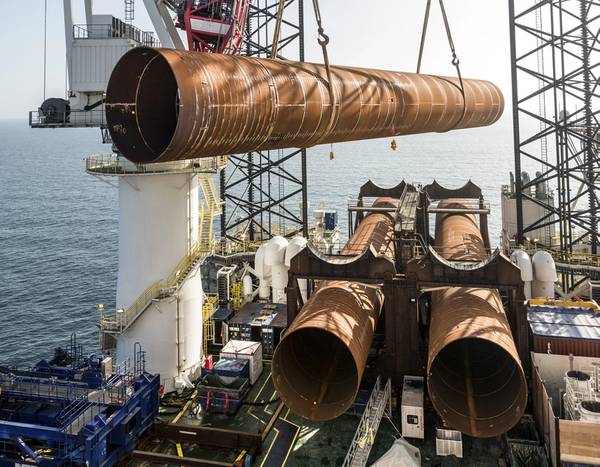
A new research project, launched this week today, aims to extend the use of offshore wind monopile foundations, to support larger turbines in deeper waters, global climate consultancy the Carbon Trust has informed.
"Monopiles are the cheapest and most widespread offshore wind turbine foundation, however, they experience structural issues as their length and the weight they bear increases. Currently, this creates weight and water depth limits. The Offshore Wind Accelerator (OWA), led by the Carbon Trust, is hoping to find a solution, through a new project called Support Structure Damping," the Carbon Trust said.
According to the Carbon Trust, the project is seeking a contractor for the technical delivery of six work packages. The invitation to tender is out this week and open to submissions from prospective bidders. The accelerator is also open for new partners to participate in the project.
Carbon Trust Offshore Wind Manager, Robert Keast said:“Monopile research is particularly urgent as the number of shallow sites are limited. Cost-effective expansion into deeper waters will be required for us to meet Net Zero targets and create more affordable energy for end consumers.”
"Currently, alternative foundation types, such as jackets, tripods, or floating structures, would need to be used past a certain depth. If monopiles become available for deeper waters, it could drastically cut the costs and complexity of wind farm development," Carbon Trust said.
Keast said, “At present, most turbines installed are 10MW or less, with larger 15-20MW turbines expected to become standard by the late 2020s. We hope that this research will find improved damping solutions for wind turbine structures, to prevent the structural issues caused by increasing water depth and turbine weight.”
The project will define new design guidelines, which incorporate improved damping technologies, for offshore wind structures. The guidelines will set best practices for developers and turbine manufacturers to collaborate in the structural design process.
The tender closes on December 1, 2022, with successful applicants expected to begin work later this year, running until early 2024.
The Carbon Trust will manage and lead the project, with the selected contractor delivering the technical studies, supported by project partners Equinor, RWE, Shell, SSE Renewables, TotalEnergies, and GE.



